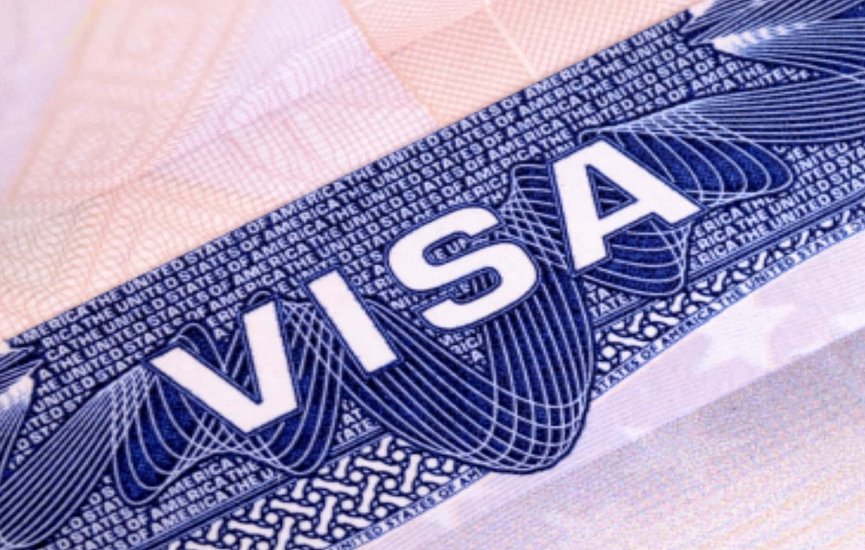The United States has announced significant changes to its non-immigrant visa policy for Cameroon, Ethiopia, Ghana, and Nigeria, reducing both the duration and flexibility of travel for most applicants from these countries.
According to the U.S. Department of State, nearly all non-immigrant, non-diplomatic visas issued to citizens of the four nations will now be limited to single-entry and valid for only three months.
The move is part of what the department calls a "global reciprocity realignment," marking a sharp departure from previous visa terms that often allowed multiple entries over periods of two years or more.
Meanwhile, Nigeria has rejected reports claiming it only offers single-entry e-visas valid for three months to U.S. citizens, disputing the basis for the U.S. action.
Nigeria Rejects US Visa Policy Justification, Urges Reconsideration
Presidential spokesman Bayo Onanuga stated on Thursday that Nigeria continues to offer five-year, multiple-entry visas to U.S. nationals.
"We want to reiterate that the U.S. government's claim of reciprocity as the reason for its current visa policy towards Nigeria does not accurately reflect the actual situation," Onanuga said.
by AfricaOne
Similar visa arrangements exist in the region: U.S. citizens are eligible for visas valid up to one year in Cameroon, and 90 days in Ethiopia. Authorities in both countries have not yet issued official responses.
However, Ghana's government released a statement noting that it had issued over 28,500 multiple-entry visas to U.S. citizens in 2025 alone. The government expressed hope for an "early resolution" to the issue and voiced "firm solidarity" with all Ghanaians affected by the new U.S. visa restrictions.
The Nigerian government also voiced concern over the decision, describing it as disproportionate and urging the U.S. to reconsider. Officials warned that the restrictions could undermine educational and cultural exchanges—long-standing pillars of U.S.-Nigeria relations.
US Visa Restrictions: Security, Reciprocity, and Political Tensions at Play
The U.S. State Department has stated that visa policies remain "subject to ongoing review", and may change based on evolving diplomatic, security, and immigration benchmarks.
In a recent statement, the U.S. government said it is working closely with authorities in Nigeria, Ghana, Cameroon, and Ethiopia to ensure compliance with international standards, which include:
- Issuing secure travel documents
- Managing visa overstays
- Sharing criminal and security data to enhance public safety
Stricter Measures in Place for Other Countries
Just last month, the United States imposed even stricter restrictions on Eritrea, Somalia, and Sudan, suspending all immigrant and non-immigrant visas for their citizens.
Clarification from the US Embassy in Nigeria
In response to growing criticism, the U.S. embassy in Abuja denied allegations that the visa restrictions were politically motivated or a punitive measure by the Trump administration. It emphasized that the decision was based solely on "technical and security benchmarks", not retaliation.
The embassy also defended its vetting measures, including a controversial rule that requires the review of social media accounts of all visa applicants for any signs of hostility toward U.S. citizens, institutions, or values.
Nigeria’s Role in International Education and Migration Trends
According to the 2024 Open Doors report, Nigeria was the seventh-largest source of international students in the U.S., and the top source from Africa. The report, published by the U.S. Bureau of Educational and Cultural Affairs, showed a 13.5% increase in Nigerian student enrollment from 2023.
Despite this, fears are growing that tougher immigration measures under President Donald Trump’s administration may discourage visa approvals, especially for young Nigerians. Many are part of the “Japa” movement—a wave of young people seeking opportunities abroad, with the U.S. among the most desired destinations.
Mixed Reactions in Nigeria
Presidential aide Bashir Ahmad suggested on X (formerly Twitter) that the visa cuts reflect U.S. discomfort with Nigeria’s growing alignment with BRICS nations, citing President Tinubu’s visit to Brazil as a possible trigger.
“This is not solely about reciprocity. Rather, it appears to reflect growing U.S. discomfort with Nigeria's increasing global realignment,” Ahmad wrote.
On the other hand, immigration lawyer Godwin Oke argued that the move fits within standard diplomatic practice.
“This is a classic case of visa reciprocity. The U.S. had been issuing Nigerians five-year multiple-entry visas, while Nigeria only offered Americans short-term, single-entry visas. It was only a matter of time before the imbalance was addressed,” he told the BBC.
by AfricaOne
Earlier this year, in March, the U.S. Mission in Nigeria issued a stern warning that visa overstays could result in permanent travel bans and even criminal prosecution. While no official data has been released on overstay rates, concerns over compliance remain central to U.S. immigration enforcement.
